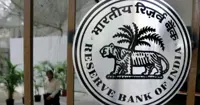New research by WTTC confirms Mexico tourism to grow
11 Aug 2009
As the first country in the world to experience an outbreak of the now widespread A(H1N1) influenza virus, Mexico has been really hard hit in terms of tourism demand over the past three months. Preliminary estimates from the Mexican Government put the impact so far at around US$200-$300 million, but the final toll could well be much greater. More than 2,000 inbound flights were cancelled during the early stages of the crisis.
"Mexico should be applauded for the way it handled the swine flu crisis," said Ufi Ibrahim, chief operations officer of the World Travel & Tourism Council (WTTC), speaking at a recent media breakfast organised by the Mexico Tourism Board. "The Mexican Government and other stakeholders in the local Travel & Tourism industry have taught us all a lot because they have shown great leadership during their period of crisis, not to mention responsibility, timeliness and effectiveness.
"This was one of the clear messages that came out of our 9th Global Travel & Tourism Summit, held in Florianpolis, Brazil, in May 2009," Ms Ibrahim added. "The virus and the need for the global Travel & Tourism industry to prepare for a pandemic were top of the agenda at the Summit, and Mexico's responsible approach to reporting the outbreak and its impact impressed delegates from around the world."
In 2008, international tourist arrivals in Mexico grew by 5.9 per cent to 22.6 million while US dollar travel spending by all visitors rose 3.4 per cent to US$13.3 billion. More significantly, WTTC's research shows that the country's Travel & Tourism Economy increased its contribution to 13.2 per cent of Mexico's GDP, growing by 3.8 per cent - as against stagnation in Travel & Tourism Economy GDP posted by the Americas as a whole.
In addition and, even more importantly, given the global economic situation and rising unemployment around the world, an estimated 40,000 additional jobs were created directly last year by Mexico's Travel & Tourism Industry, raising the total number of people directly employed in the sector to 1.7 million.




.webp)


























